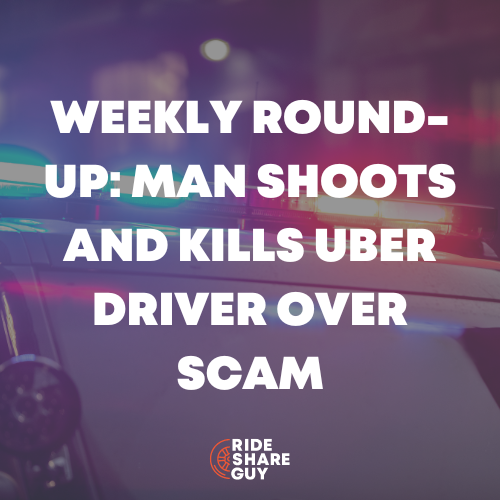In the Uber vs Taxi debate, it appears the Boston courts have sided with Uber…so far. Senior RSG contributor Paula Gibbins breaks down this week’s news including restaurants that are opening ghost kitchens specifically for delivery-only services.
Lyft drivers concerned by what they call unjust deactivations from rideshare service (WSBTV)
Summary: Local Lyft drivers said they are in a back-and-forth with the company over what they are calling unfair deactivations of their accounts.
Drivers said they’re talking about small complaints for things like riders being upset they have to wear a mask or a driver’s car being too dirty.
Advocacy groups said there is a growing number of unfair accusations against drivers, resulting in them losing their jobs….
My Take: We’ve heard so many stories about unjust deactivations. We’ve even written about it! The real kick in the pants is that Uber and Lyft have this nasty little habit of not telling the drivers why they are being deactivated. So, the drivers can’t rebut it or provide any evidence to prove it was done in error.
Uber’s latest delivery service partnership has drawn the FTC’s attention (The Verge)
Summary: The US Federal Trade Commission (FTC) is looking into a recent partnership between Uber and grocery delivery service Gopuff, according to a new report from The Information. Gopuff agreed to list its collection of grocery and liquor store items on Uber Eats in May, expanding Uber’s delivery abilities to an even greater degree as it competes with other companies like DoorDash and Instacart.
The FTC is concerned that the deal “could hamper competition in online sale and delivery of alcohol and convenience-store items,” according to The Information. Gopuff’s been growing on its own recently, acquiring the BevMo liquor store chain to use as stores and delivery centers, almost like Amazon warehouses for alcohol. The FTC is reportedly also looking in to Uber’s recent acquisition of Drizly, an alcohol delivery service that Uber intends to fold into its Uber Eats app.
Uber has been attempting to pivot into delivery for several years now with acquisitions of Postmates and Cornershop in 2020 and 2019, respectively. As the company’s original ride-hailing business has struggled during the pandemic, finding an alternative has been key, but the FTC might get in the way of that now. Uber did not immediately respond to a request for comment on the investigation….
My Take: It’s not really strange that the FTC would poke into this acquisition. Part of their purpose is to prevent monopolies from happening, and when a company like Uber is buying out competitors, it throws up a red flag and gives reason for inspection.
You got to keep some competition… in theory.
Wendy’s plans to partner with a startup to open 700 delivery-only ghost kitchens by 2025. An exec breaks down why. (Business Insider)
Summary: Ghost kitchens, which don’t have dining rooms and just cook food for delivery, are one of the biggest restaurant trends to come out of the pandemic. Usually, customers can only get food from these kitchens by ordering on the restaurant’s website or app, or via a third-party delivery service like DoorDash, Grubhub, or Uber Eats.
Wendy’s new ghost kitchens will be spread across the US, Canada, and the UK, with around 50 set to open by the end of 2021, Wendy’s CEO Todd Penegor said on the company’s earnings call Wednesday.
Each unit could make up to $1 million a year in sales, he predicted.
The partnership with Reef would allow Wendy’s to expand more into urban locations and to target areas where it doesn’t currently have many restaurants, Penegor said.
My Take: I could see this being the norm for more restaurants. Both delivery drivers and restaurants are getting frustrated with each other. Delivery drivers are crowding out lobbies and restaurant workers don’t give delivery drivers the time of day.
Having ghost kitchens that are only accepting delivery orders would cancel out a lot of those issues. And hopefully some of the animosity would disappear.
At this point, I only see this addition as a good thing.
Boston Taxi Companies’ Lawsuit Against Uber Dismissed on all Counts by Appeals Court (Law Street Media)
Summary: Last Friday, the First Circuit Court of Appeals issued its decision in a case between Massachusetts taxi companies and Uber Technologies, Inc. over alleged unfair competition in entering the taxi market without medallions. The court upheld the district court’s judgment, siding with Uber on all counts.
Between 2013 and 2016, transportation network companies (TNCs) such as Uber, Lyft and Sidecar entered the scene and “upended” the taxi industry, the opinion recounted. The panel continued that there were no regulations on these companies until 2016, and in the meantime these companies were able to circumvent the standard costs of taxis by contracting workers who paid for their own expenses.
The plaintiffs alleged that “Uber competed unlawfully in the on-demand, ride-hail ground transportation market in and around Boston,” and claimed over $122 million in damages from the “unfair competition.” Anoush Cab and the other taxi companies claimed damages under Massachusetts unfair competition laws, common law, and aiding and abetting a conspiracy to engage in unfair competition. The district court ruled in favor of Uber and dismissed all claims against them….
My Take: It’s no secret that taxi drivers haven’t been a fan of Uber drivers since rideshare became a thing. But for a big city like Boston to side with Uber is a bit unusual. Especially considering the legal changes that might be coming down the pipe.
Are you on the side of taxis or Uber? Both? Neither? Share your thoughts below!
-Paula @ RSG




